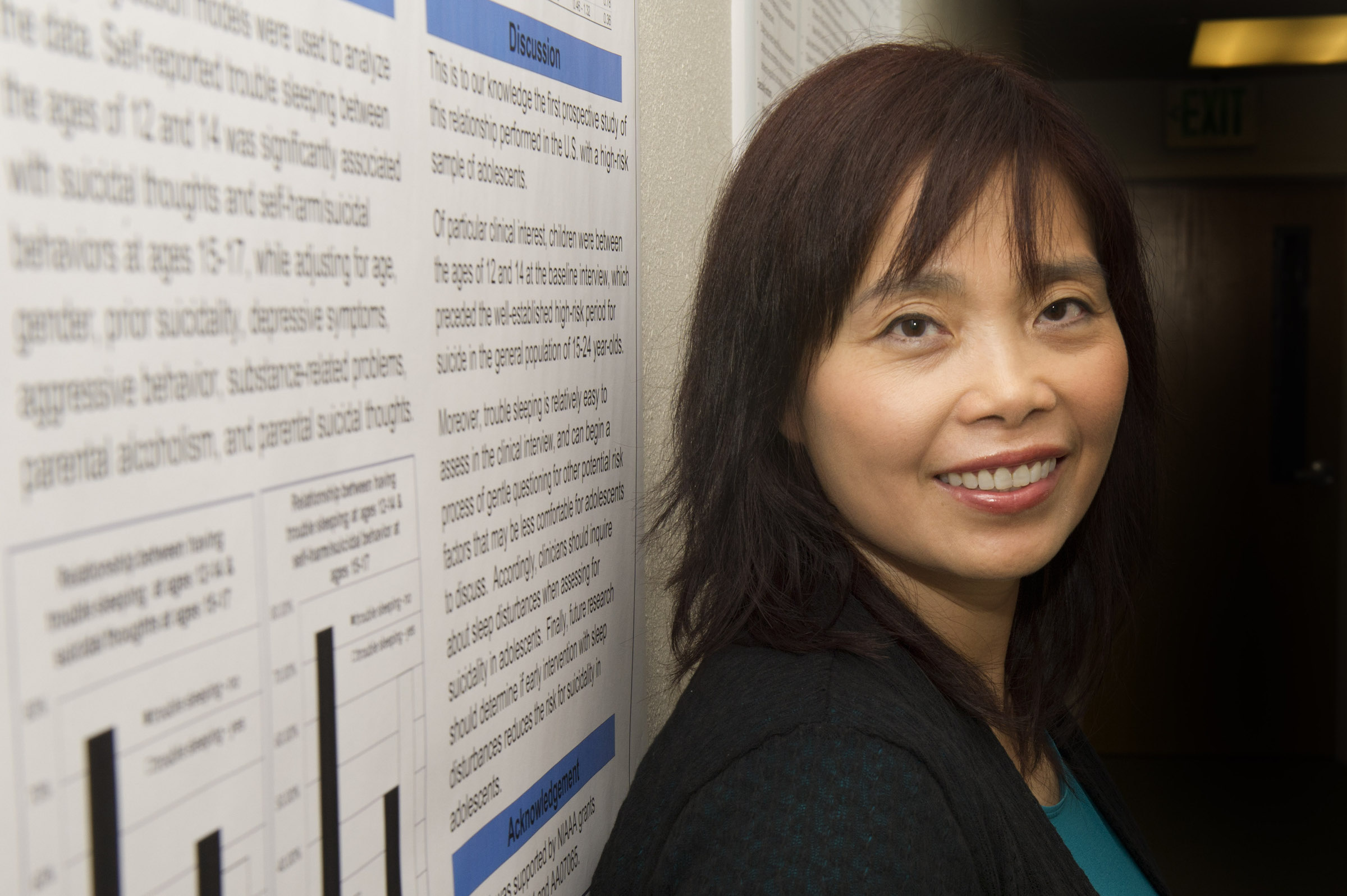Idaho State University psychology Professor Maria Wong named to NIH grant review panel
June 20, 2016

POCATELLO – Idaho State University psychology Professor Maria Wong in the College of Arts and Letters has received an invitation from the National Institute of Health (NIH) to serve as a member of the Biobehavioral Mechanisms of Emotion, Stress, and Health (MESH) study section.
“It’s a huge honor and it will be a lot of work. This is completely a service to the medical research community, however it is a select group,” Wong said. “I’m proud to represent the state of Idaho, which is generally not represented well on this type of review panel. Now there will be an ISU Bengal on the committee, which says something about the quality of research and researchers at ISU.”
NIH is a US government agency and is the largest public funding source for biomedical research in the world. It funds research grants to "enhance health, lengthen life, and reduce illness and disability."
Every year NIH receives over 50,000 grant applications and grant reviewers advise NIH on which grants to fund. NIH research grants are very competitive and are difficult to get. Receiving an NIH grant is a recognition of the potential significant contribution of one's research.
Being appointed to an NIH study section to review grants is further recognition of one's stature in the field. According to the invitation letter to Wong, study section members "are selected on the basis of their demonstrated competence and achievement in their scientific discipline as evidenced by the quality of research accomplishments, publications in scientific journals, and other significant scientific activities, achievements and honors."
Wong is currently the principal investigator of a five-year, $1.6 million NIH grant to conduct research at ISU on the relationship between sleep and health-related behaviors in children. In the past, Wong has served several times as an ad hoc grant reviewer for the NIH. This time the letter invites her to serve as a standing member of the study section for a four-year term beginning on July 1.
The MESH study section reviews grant applications on the interactions of stress, emotion, sleep and circadian rhythms, and their relationships to physical and mental illness and health. Her responsibility in the study section includes reviewing grant applications submitted to the NIH, making recommendations on the applications to the appropriate NIH national advisory council or board, and surveying the status of research in her fields of science.
Wong will meet with other committee members three times annually to review grant proposals. There are 15 to 20 members nationally and they will collectively review 60 to 80 grant proposals per meeting, with each scientific reviewer being primarily responsible for eight to 10 proposals.
“The number of proposals will vary, but each member writes a review for each one they are primarily responsible for, and they have to read all of them,” Wong said. “I will learn a lot from it.”
In the invitation letter Wong received, Richard Nakamura, director of the Center for Scientific Review of the NIH, wrote that these functions would be “of great value to medical and allied research in this country.”
The letter further explained that “Members are selected on the basis of their demonstrated competence and achievement in their scientific discipline as evidenced by the quality of research accomplishments, publications in scientific journals, and other significant scientific activities, achievements and honors. Service on a study section also requires mature judgment and objectivity as well as the ability to work effectively in a group, qualities we believe Dr. Wong will bring to this important task.”
A description of the MESH study section can be found in http://public.csr.nih.gov/StudySections/IntegratedReviewGroups/BBBPIRG/MESH/Pages/default.aspx.
Categories:
